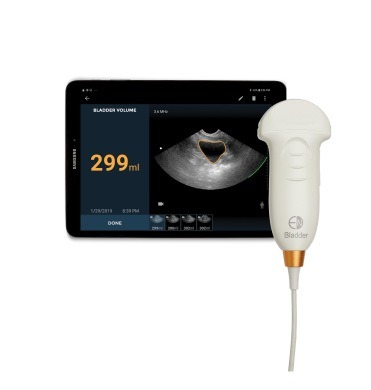EchoNous, an innovator focused on delivering intelligent medical tools, has announced the release of EchoNous Bladder, an all-electronic, non-mechanical, bladder scanning tool for nurses.

Image: EchoNous Bladder is all-electronic, non-mechanical and bladder scanning tool for nurses. Photo: courtesy of Business Wire.
To help nurses quickly determine bladder volume of patients, EchoNous Bladder combines data-rich fanning, a state-of-the-art algorithm using Convolutional Neural Networks (CNNs), and a higher-quality, ruggedized probe design. The tool will further separate EchoNous from conventional bladder scanners, particularly in treating pregnant and postpartum patients.
“We believe the status quo in bladder scanning was not good enough for nurses or their patients. Our world-class team of ultrasound engineers and machine learning scientists have remained focused on moving beyond the 30-year old probe technology being used today in bladder scanning,” said Niko Pagoulatos, PhD, Chief Operating Officer of EchoNous.
“While the entire ultrasound industry abandoned mechanical probes in the late 1980s, conventional bladder scanners have continued on with this outdated technology. We decided it was time to raise the bar for this application space.”
The all-electronic EchoNous Bladder eliminates all moving parts, bringing a whole new level of reliability and durability as proven during the company’s internal three-foot drop tests. Using a fanning motion to gather the maximum amount of data, this tool enables nurses to make more informed clinical decisions based on a far more complete picture of the bladder.
Critical to the deep learning algorithms used to improve measurement accuracy in machine learning-driven ultrasound tools is the larger amounts of data required to “feed” the AI algorithms – well beyond the levels of data that traditional “point & click” bladder scanners offer.
The higher levels of data captured by AI-driven medical tools can help raise actual performance for more precise measurements on real patients versus bladder phantoms. However, the key is extracting more data when these new algorithms are utilized.
EchoNous Bladder is designed to be smoothly fanned from hip to hip, as the probe is lightweight and comfortable to hold. Additionally, engaging on-screen prompts, along with short video clips help nurses acquire bladder volume with just a few taps on the screen.
Furthermore, the new scanning tool pairs with EchoNous Vein as part of EchoNous’ AI Station, providing nurses all the tools needed for bladder scanning and vascular access on one platform.
Source: Company Press Release
